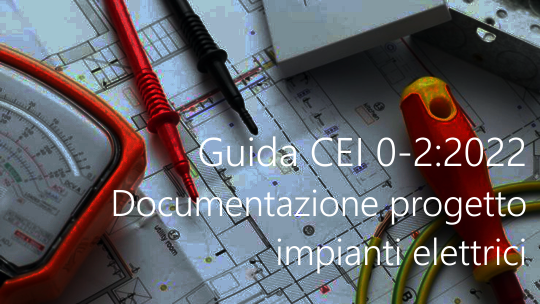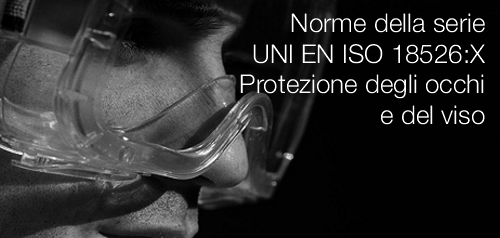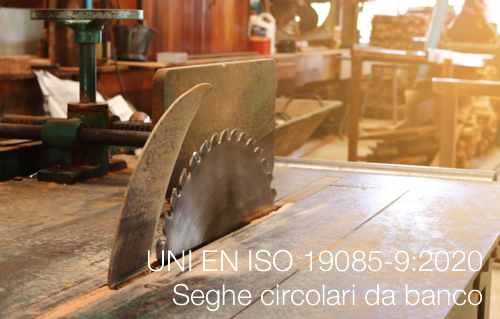// Documenti disponibili n: 46.372
// Documenti scaricati n: 36.281.611
ID 20511 | 05.10.2023 / Preview attached
ISO 7101:2023 Healthcare organization management - Management systems for quality in healthcare organizations - Requirements
ISO 7101 is the first international consensus standard for healthcare quality management.
It prescribes requirements for a systematic approach to sustainable, high quality health systems, enabling organizations of any scale, structure, or region to:
- create a culture of quality starting with strong top management;
- embrace a healthcare system based on people-centred care, respect, compassion, co-production, equity and dignity;
- identify and address risks;
- ensure patient and workforce safety and wellbeing;
- control service delivery through documented processes and documented information;
- monitor and evaluate clinical and non-clinical performance;
- continually improve its processes and results.
Why is ISO 7101 important?
Healthcare organizations around the world have been facing significant threats for several years, such as decreasing financial resources, workforce shortages, an increase in the number of people needing care as a result of ageing populations, increasing rates of chronic disease, lack of data for decision making, scarcity of, or inadequate, medical equipment and medications, and an absence of clear healthcare system governance.
Benefits
- Refined quality of healthcare delivery.
- Improved patient safety.
- Cost-efficiency.
- Enhanced operational effectiveness.
- Strengthened reputation and extended market reach.
Who is it designed for?
ISO 7101 has been written with a focus on providing requirements for healthcare quality management. In as such, its targeted audience is broad, including any healthcare system, organization, or entity that aims to increase the quality of its healthcare delivery and care outcomes
How does ISO 7101 address global healthcare challenges and the evolving healthcare sector?
This standard assists organizations in navigating the complexities of healthcare, from limited resources and aging populations to challenges like global pandemics. It stresses the need for timely, safe, and people-centered care, highlighting the urgency of adaptation due to the surge of virtual healthcare and technological advances.
How does implementing ISO 7101 benefit healthcare organizations?
Implementing ISO 7101 equips organizations to deliver high-quality healthcare via systematic, evidence-based methods. It leads to improved user experiences, increase the quality of its healthcare delivery and care outcomes, and fosters a culture prioritizing quality. Its flexibility ensures it's applicable to diverse healthcare providers, from small clinics to expansive hospitals.
Does ISO 7101 replace an organization's legal obligations or generate significant paperwork?
No, this International Standard doesn't override legal responsibilities. While it necessitates some documentation, its primary objective is to establish transparent processes that enhance healthcare delivery, without promoting excessive administrative tasks.
How can organizations demonstrate conformity to ISO 7101, and what are the reputation benefits?
This International Standard contains the requirements used to assess conformity. An organization that wishes to demonstrate conformity with this International Standard can do so by:
- making a self-determination and self-declaration, or;
- seeking confirmation of its conformance by parties having an interest in the organization, such as service users, or;
- seeking confirmation of its self-declaration by a party external to the organization, or;
- seeking certification/registration of its healthcare quality management system by an external organization.
Successful implementation of this standard can demonstrate to stakeholders that an effective healthcare quality management system is in place.
_______
Introduction
1 Scope

ID 16432 | Update 04.02.2025 / Allegata Preview
Data di pubblicazione: 03.2022
Abrogata da ...

ID 14650 | 30.09.2021 / In allegato Preview
Serie norme UNI EN ISO 18526:X Protezione degli occhi e del viso:
- UNI EN ISO 18526-1:...

UNI EN ISO 19085-9:2020 Macchine per la lavorazione del legno - Sicurezza - Parte 9: Seghe circolari da banco (con o senza tavola mobile)
Data entrata...
Testata editoriale iscritta al n. 22/2024 del registro periodici della cancelleria del Tribunale di Perugia in data 19.11.2024